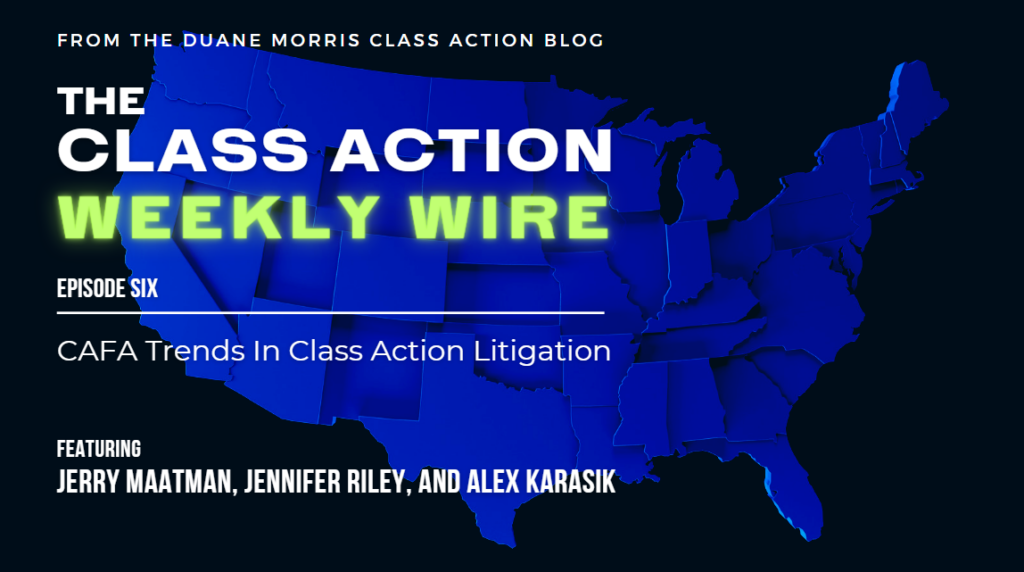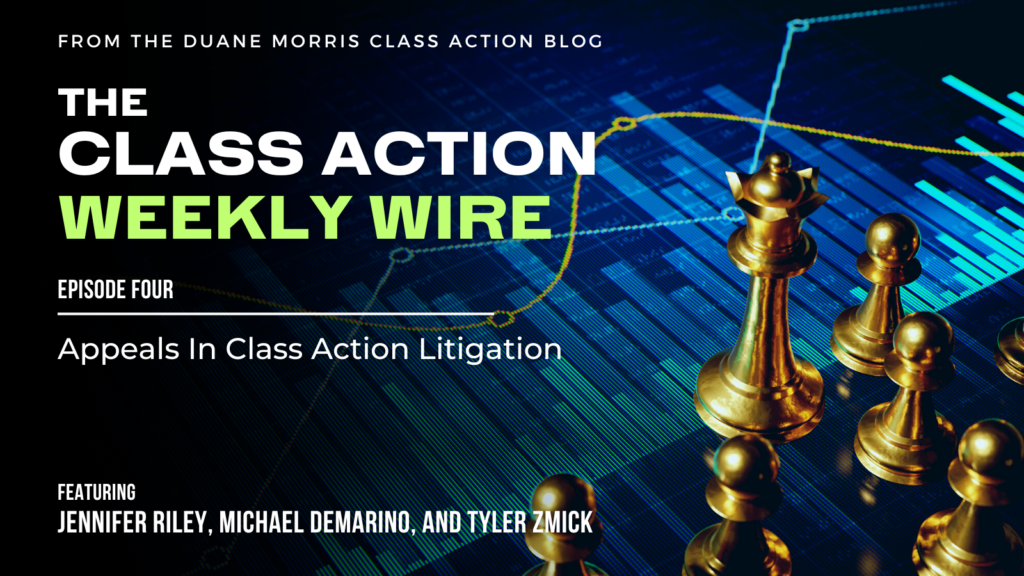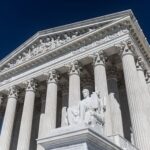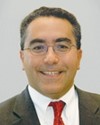Duane Morris Takeaway: This week’s episode of the Class Action Weekly Wire features Duane Morris partners Jerry Maatman, Jennifer Riley, and Alex Karasik with their analysis of significant rulings and trends in class action litigation under the Class Action Fairness Act of 2005 (“CAFA”). We hope you enjoy it!
The Class Action Weekly Wire Podcast – Episode Five
The Class Action Weekly Wire Podcast – Episode Four
Duane Morris Takeaway: This week on the Weekly Wire podcast, we are pleased to present Duane Morris partners Jennifer Riley and Michael DeMarino and associate Tyler Zmick in our fourth podcast in our series on class action litigation developments. This week’s edition focuses on appeals in class action litigation. We hope you enjoy it!
The Class Action Weekly Wire Podcast – Episode Three
The Class Action Weekly Wire Podcast – Episode Two
DMCAR Trend #10 – DMCAR Trend # 10 – PAGA Actions Suffered Their First Setback, Work-Arounds Continued To Percolate Video
U.S. Supreme Court Decides FLSA Requires Overtime Pay For Highly Paid Day-Rate Workers
On February, 23, 2023, the U.S. Supreme Court decided Helix Energy Solutions Group, Inc. v. Hewitt No. 21-984 (U.S. Feb. 22, 2023), a highly anticipated ruling on the Fair Labor Standards Act (FLSA). The ruling is a cautionary tale for employers, warning that any cracks in their compensation structure may put them on the hook to pay overtime to high-earning employees. Hewitt determined that the FLSA required an employer to pay overtime to an offshore oil rig worker who earned over $200,000 annually because it paid him a daily, not weekly, rate. The decision is a must-read for all employers on their strategies for wage-and-hour compliance.
Read the full Alert on the Duane Morris LLP website.
The Fifth Circuit Breathes Live Into A Securities Fraud Class Action Based On Information From Confidential Witnesses
 By James J. Coster and Nelson Stewart
By James J. Coster and Nelson Stewart
Duane Morris Takeaways: At the motion to dismiss stage of a securities fraud class action, the weight given to the statements of a confidential witness will depend on the basis of that individual’s knowledge concerning the allegations at issue. In Oklahoma Firefighters Pension & Retirement Systems v. Six Flags Entertainment Corp., No. 21-10865, 2023 WL 228268 (5th Cir. Jan. 18, 2023), the Fifth Circuit reversed a decision from the District Court dismissing a class action complaint against Six Flags Entertainment Corp. The District Court had applied a significant “discount” to the allegations of a confidential witness. The Fifth Circuit’s decision indicates that the heightened pleading requirements of securities fraud claims brought under the Securities Exchange Act can be satisfied by an anonymous witness if the source of the information identified in the complaint demonstrates the significant knowledge of the witness and the statements are accompanied by corroborating evidence. As such, this ruling is a “must read” for corporate decision-makers involved in securities fraud class action litigation.
Background
In 2014 Six Flags Entertainment Corp. partnered with Chinese real estate developer Riverside Investment Group to construct and manage new theme parks across three cities in China as part of its plan to increase development and licensing revenues through international expansion. From April 2018 to October 2019, Six Flags, as well as its CEO and CFO, issued public statements confirming the progress of the parks and projected opening dates for the new parks. Plaintiff brought claims under Sections 10(b) and 20(a) of the Securities Exchange Act and SEC Rule 10b-5, alleging that Six Flags and its officers made material omissions of fact and misleading statements concerning the competence and financial health of Riverside, the progress of construction on the new parks, and projected openings and revenue. The complaint relied primarily on the allegations of a confidential witness, who formerly held the position of Six Flags International Director of International Construction and Project Management, to assert that construction of the parks was well behind schedule because Riverside could not pay its contractors, and the timelines Six Flags had projected for the opening of its parks in China were not possible. In early 2020 Six Flags acknowledged that it expected a $1 million negative revenue adjustment and charges of $10 million because Riverside had defaulted on its payment obligations. Shortly thereafter, Six Flags also announced that it was terminating its agreement with Riverside. Shares of Six Flags fell from $73.38 to a seven year low of $31.89 in during the Putative Class Period.
Citing earlier decisions from the Fifth Circuit, the District Court determined that it was required to substantially discount the statements of the confidential witness. The District Court dismissed the complaint with prejudice and held that Plaintiff had not met the heightened pleading requirements for securities fraud claims under Rule 9(b) or the Private Securities Litigation Reform Act (PSLRA).
The Fifth Circuit’s Ruling
On appeal, a key consideration in determining whether the complaint had adequately alleged material misrepresentations and the scienter required for securities fraud claims under the Securities Exchange Act concerned the appropriate weight that should be given to the confidential witness. The Fifth Circuit distinguished the cases cited by the District Court and found that while allegations of an anonymous witness must be discounted under the heightened pleading standards of Rule 9(b) and the PSLRA, the degree of that discount depends on the details in the complaint describing the source and whether the source’s knowledge has been substantiated by those details.
Plaintiff’s confidential witness supervised and inspected the development of the parks in China onsite and sent progress reports to Six Flags. The witness also interacted directly with Riverside, attended meetings with Six Flags personnel in China (where it was disclosed that Riverside did not have sufficient funds to complete the project), and sent a letter warning that Riverside had inadequate funds to a Senior Vice President of Six Flags in August 2019. The Fifth Circuit cited cases from the Seventh Circuit and Third Circuit, which held that the level of detail provided and first-hand knowledge of the facts can determine the weight afforded to anonymous sources. It reasoned that the level of details in the complaint concerning the former employee’s duties, and corroborating evidence in the form of a photograph that showed minimal construction at one of the park sites, warranted only a minimal discount of the former employee’s general allegations. As for the allegations concerning the financial health of Riverside, the District Court applied a significant discount to the statements of the confidential witness because it concluded the witness would not have personal knowledge of Riverside’s internal finances. The Fifth Circuit held that personal knowledge of Riverside’s financial condition based on the position the witness held at Six Flags, rather than comprehensive personal knowledge, was sufficient and applied a minimal discount to those allegations as well.
With greater weight given to the statements of the confidential witness, the remaining findings of the District Court with respect to forward looking statements, i.e., Plaintiff’s failure to adequately plead misstatements of facts and Plaintiff’s failure to adequately plead scienter, were also reversed. The Fifth Circuit denied Six Flags’ argument that statements made during the Class Period were forward looking, included appropriate cautionary language and should be granted protection under the PSLRA’s safe harbor provision. Because many of the alleged misstatements concerned projections that were based on the current status of the construction, they were deemed mixed statements of present and future conditions that were ineligible for safe harbor protection. Certain statements that did address future projections were also denied protection. The Fifth Circuit ruled that the cautionary language cited by Six Flags was not sufficiently specific to the risks at issue in the forward looking statements.
In the absence of appropriate cautionary language, the Fifth Circuit examined whether the complaint sufficiently alleged materially misleading statements of fact. Where the District Court found the allegations of the confidential witness conclusory as to statements concerning the impossibility of the projected opening dates of the parks, the Fifth Circuit concluded the impossibility of the timeline necessary to construct the park was a fact-based, industry specific question that was not applicable at the motion to dismiss stage of the litigation. Plaintiff was also found to have sufficiently alleged that the Six Flags omitted critical information about Riverside’s financial difficulties based on the minimally discounted allegations of the complaint. The Fifth Circuit specifically cited the August 2019 letter to Six Flags that contradicted its positive statements regarding Riverside’s financial viability.
In its analysis of the scienter requirements under the PSLRA, the Fifth Circuit considered the collective weight of motive, and reports from the confidential witness detailing the poor progress of the theme parks that were sent to Six Flags management. Bonuses well in excess of base salaries would be awarded to management if Six Flags achieved a $600 million EBITDA by the end of 2018. While acknowledging that this motive alone could not support a strong inference of scienter, the bonus incentives, when viewed together with the progress reports, were held sufficient to create a strong inference that Six Flags had actual knowledge that its 2018 statements were false. After the target was missed the bonus incentives were eliminated and thus inapplicable to the alleged misstatements or omissions of fact made in 2019. Nevertheless, the Fifth Circuit found that Six Flags had boasted that its international licensing deals would be a significant driver of increased EBITDA. A February 2019 statement concerning a comprehensive review of the parks also indicated that Six Flags was aware of the progress of construction at the various sites in China. Plaintiff alleged a “core operations” theory of scienter, which asserts that when a transaction at issue is critical to a company’s success, misstatements or omissions concerning the transaction should be readily apparent to the speaker. The decision acknowledged that all elements of a core operations theory of scienter were not entirely satisfied. However, the Fifth Circuit held that the circumstances of the 2019 statements, combined with the witness reports to Six Flags, also created a strong inference of scienter for the 2019 statements.
Implications for Public Companies
The ruling in Oklahoma Firefighters Pension & Retirement Systems provides clarification concerning the discount that should be applied to the allegations of a confidential witness that is consistent with decisions of the Seventh Circuit and the Third Circuit. These decisions suggest that descriptions in a complaint that detail the source of relevant information provided by an anonymous witness increase the credibility of that information. This clarification may help the plaintiff’s bar navigate motions to dismiss by offering increased guidance in framing securities fraud complaints in the Fifth Circuit.
There Is Still Time To Register For A Duane Morris Exclusive Event: Top Trends In Class Action Litigation In-Person Panel And Webinar Discussion For Book Launch
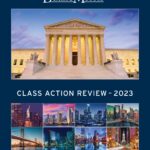 Duane Morris Takeaways: Register today and come join us Thursday at a Duane Morris Exclusive Event!
Duane Morris Takeaways: Register today and come join us Thursday at a Duane Morris Exclusive Event!
You are invited to join Duane Morris Partners Gerald L. Maatman, Jr. and Jennifer Riley for a panel discussion marking the release of the Duane Morris Class Action Review. The DMCAR has received rave reviews (here and here) since its publication, and this event will provide expert insights into the top 10 class action trends of 2022, and perspectives on what corporate counsel and business leaders can expect in 2023. Prominent plaintiffs’ class action lawyer of Joe Sellers of Cohen Milstein will join the discussion to provide thoughts on what the plaintiffs’ bar is expected to focus on in 2023.
Please register here to attend in person or by zoom to reserve your seat!
In Person Event: Thursday, January 26, 2023
Registration: 1:30 p.m. to 2:00 p.m. Eastern
Book Launch and Discussion: 2:00 p.m. to 3:00 p.m. Eastern
Reception: 3:00 p.m. to 5:00 p.m. Eastern
Location:
Convene CityView
Duane Morris Plaza | 13th Floor
30 South 17th Street
Philadelphia, PA 19103
Speakers:
Gerald L. Maatman, Jr., Partner and Chair Workplace Class Action Group, Duane Morris LLP
Jennifer A. Riley, Partner and Vice-Chair Workplace Class Action Group, Duane Morris LLP
Joseph M. Sellers, Partner Cohen Milstein
Opening Remarks:
Matthew A. Taylor, Chairman and CEO, Duane Morris LLP
Thomas G. Servodidio, Vice-Chairman, Duane Morris LLP
California Attorney General Utilizes Novel Nuisance Theory From Opioid Litigation Against Manufacturers Of “Forever” Chemicals In New Government Enforcement Action
 By Sharon L. Caffrey and Gerald L. Maatman, Jr.
By Sharon L. Caffrey and Gerald L. Maatman, Jr.
Duane Morris Synopsis—The Attorney General of California has filed a first of its kind lawsuit against several named manufacturers and “John Doe” manufacturers of per- and polyfluoroalkyl substances (commonly known as PFAS and PFOA) based upon the same public nuisance theory used by several attorneys general and local governments against opioid manufacturers, distributors, and pharmacies in nationwide class action litigation. Claiming that defendants knew PFAS, PFOA, and related chemicals were harmful but put the chemicals into the market and into the environment with insufficient testing, and claiming the PFAS can be found in the bloodstreams of virtually every Californian, the Attorney General is seeking both equitable and financial relief, including an injunction against further sales of products containing PFAS and PFOA, remediation, and monetary damages. The lawsuit is a blockbuster of ambitious claims, and given the ubiquitous nature of PFAS and PFOA, this case is one of potential concern for any manufacturer whose products or processes may result in the ingestion or release of PFAS and PFOA.
Case Background
On behalf of the People of California, the California Attorney General is seeking remediation and damages of soil and groundwater allegedly contaminated with PFAS and PFOA. PFAS and PFOA are sometimes referred to as “forever chemicals” because of their bio-durability in soil, groundwater, and in the human body. In a nod to the playbook of successful class actions against another industry, the Attorney General’s action relies on the same public nuisance theory used in the opioid litigation, as well as traditional product liability failure to warn theories of liability.
PFAS and PFOA are found in a “wide array of products and industrial processes,” including products as common as food packaging, carpet and fabric coatings and cleaning products. The claim centers on the release of PFAs and PFOA into drinking water sources, including bays, lakes and streams. Claiming exposure to PFAS and PFOA contributes to certain cancers, adverse pregnancy outcomes, delayed puberty, and infertility, among other harms, the Attorney General’s suit notes that PFAS and PFOA are ingested orally and persist in the body because they are not readily broken down.
In support of his claims, the Attorney General relies primarily on toxicology studies and some in vitro studies, as well as very limited human epidemiologic evidence that PFAS and PFOA are associated with certain adverse health outcomes. The complaint also notes that the California Office of Environmental Health Hazard Assessment (OEHHA) listed PFOA and PFOS as chemicals known to cause reproductive toxicity under the Safe Drinking Water and Toxic Enforcement Act of 1986, commonly known as “Prop 65.” The Complaint further asserts that the EPA intends to issue enforceable National Primary Drinking Water Regulations (NPDWRs) for drinking water contaminants, to include PFAS and PFOA by the end of 2022. Because PFAS and PFOA are not readily broken down in soil, water or the human body, they are found in over 97 percent of all Californians’ bloodstreams. Finally, the Attorney General’s lawsuit claims that defendants put products containing PFAS and PFOA in the stream of commerce without adequate testing or warnings of the harms they could cause, or while being aware of the potential harms and not warning the public.
Implications For Manufacturers
At present California is the only state that has filed a claim against manufacturers who allegedly put PFAS and PFOA into groundwater and soil. California’s unique Prop 65 is part of the basis for the Attorney General’s claim. However, if the U.S. Environmental Protection Agency issues enforceable limits on PFAS and PFOA in drinking water, similar suits will inevitably arise in other jurisdictions. Companies who believe they may be at risk for similar claims should consult with counsel about the best way to mitigate any exposure for such litigation.

